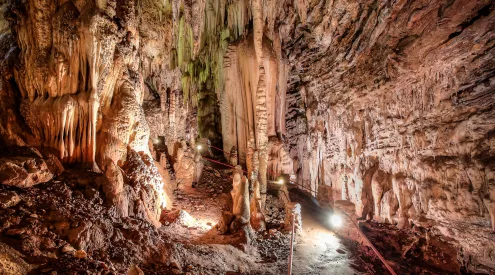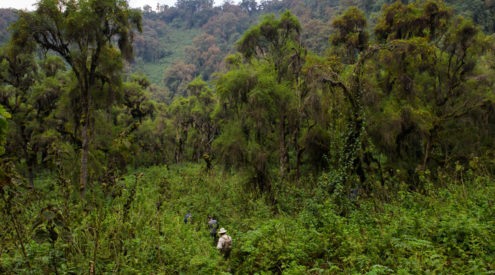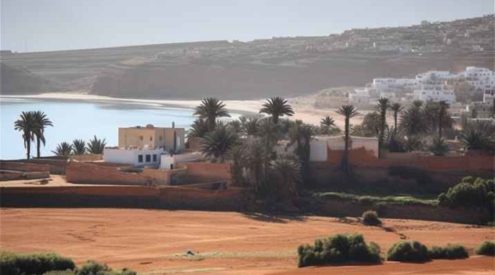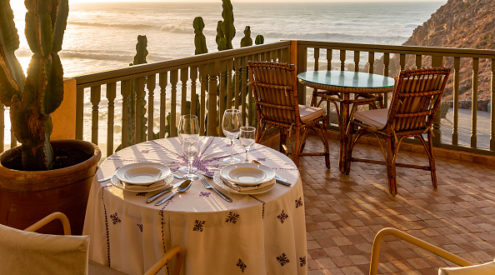After a couple of weeks spent at the lake frolicking with the cyclids, kayaking and generally having a jolly good time (read Leg One: Mumbo Island Camp) it was time for me and Gem to be on our merry way to Malawi’s southern regions. I would have been a little sad to leave the rustic charms of Mumbo Island if we didn’t have such an enticing second leg lined up. So it was seconds out, round two – we were off to Malawi’s famous tea estates, its greatest conservation success, and some rather special viewpoints.
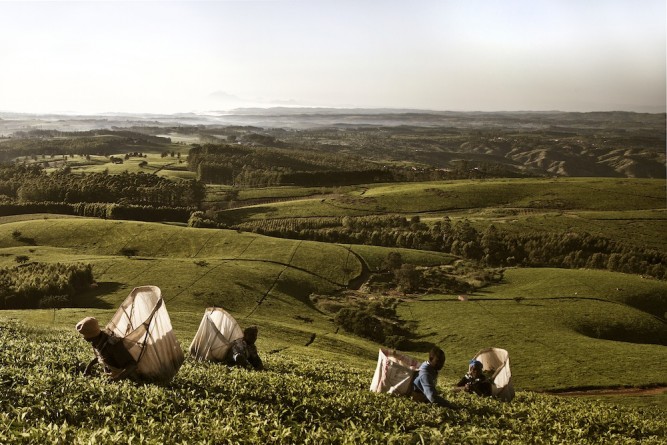
The Thyolo district of Malawi is renowned for its tea plantations. Satemwa was Malawi’s first Fair Trade certified producer of tea – the estate now employs over 2,000 local people. Visitors can sample all varieties produced here including black, oolong and ph-erh.
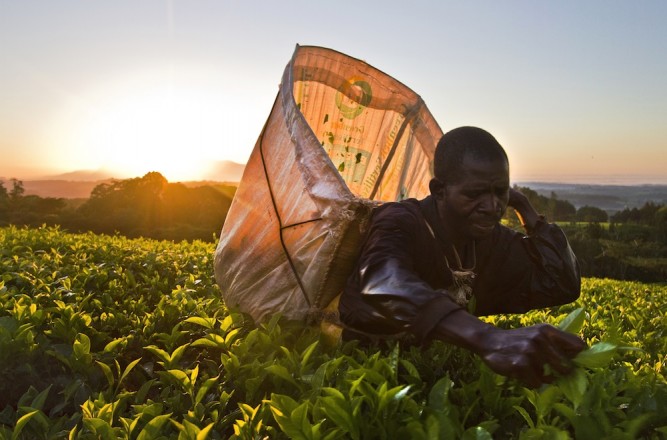
Forget the golden morning light, the long shadows, the fuzzy anticipation of a new day: I’m just not that into sunrises (especially when the beds are as comfortable as they are at Satemwa’s Huntingdon House). But snapping the industrious tea pickers as the sun poked over Thyolo’s mountains was something even I had to haul my lazy tushy out of bed for.
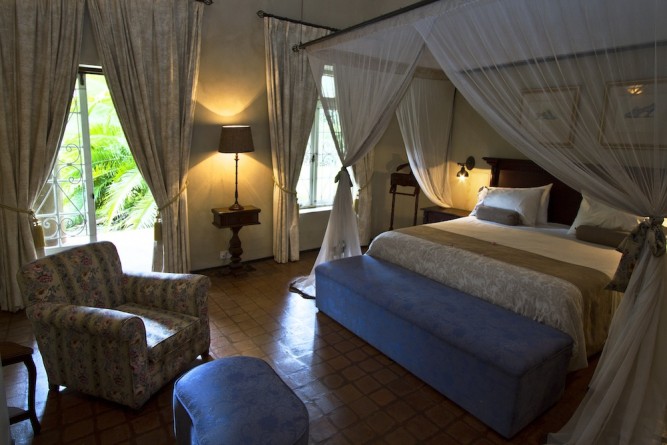
The aforementioned ‘comfortable bed’ at elegant Huntingdon House (you can now see why leaving it was such a struggle). The colonial-style estate was built in the 1920’s by Maclean Kay. It is now run by his son – the outspoken Chip – and his wife Dawn. With the tea estates on its doorstep, Huntingdon House may have one of the most impressive back gardens in Africa. Try the high tea: it’s delicious.
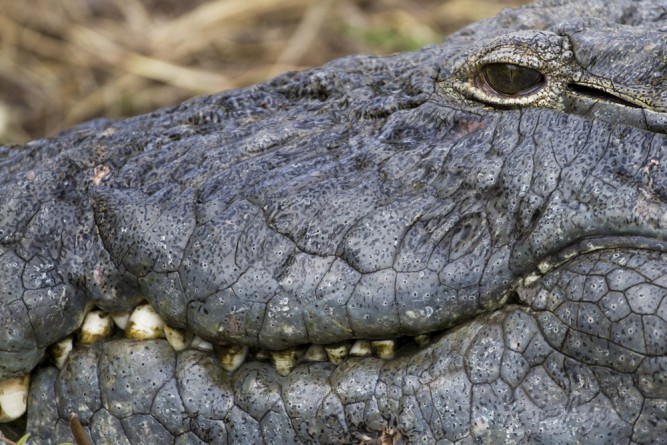
A crocodile relaxes in the sun at Majete Wildlife Reserve. Since African Parks and the Malawian government took over Majete’s management at the beginning of 2000, wildlife has thrived. Along with some formidable crocs, visitors can check out species such as black rhino, elephant, buffalo, eland, kudu, sable, suni, klipspringer, hartebeest and zebra.
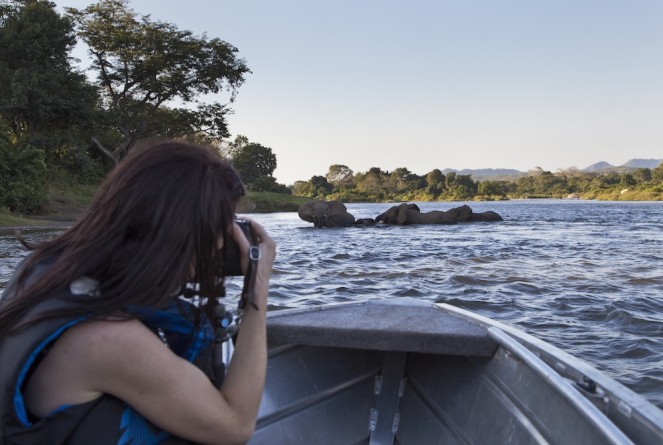
Covering an area of over 70,000 hectares, Majete comprises of dense miombo woodlands, riverine forest and river valleys. Watching a herd of elephants crossing the Shire River, as they held onto each others’ tails with their trunks, was as unexpected as it was delightful. Gems even managed to catch a few cracking shots of the sodden pachyderms.

Robin Pope Safaris’ Mkulumadzi Lodge is one of the jewels in Majete’s crown. This luxury lodge has eight high spec chalets and an inviting dining area, along with a talented chef in Guy Kleynhans. A special mention also goes out to manager Chris who is one of the most knowledgeable, friendly and professional guides Gem and I have come across on our travels around Africa. Just don’t get him on to the subject of termites (you might be there a while).
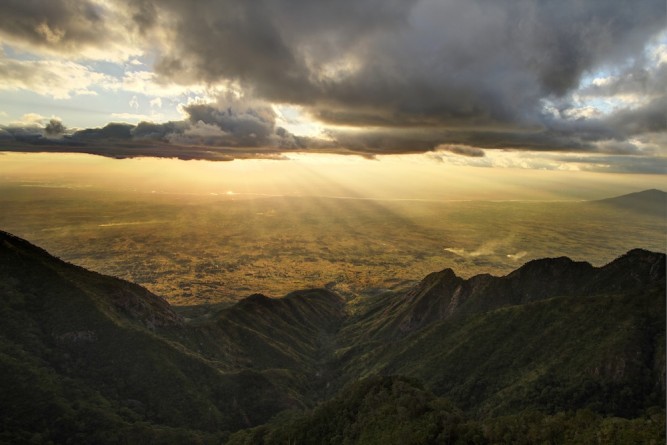
Zomba mountain features to a number of enchanting lookouts, including this one called Chingwe’s Hole. We were treated to an orange, then pink, then red light show during a one hour sunset of spectacular proportions (the sort that makes your tummy feel funny). It reminded me a little of my home town of Leamington Spa in England – minus the youths in hoodies who want to brick your windows in.
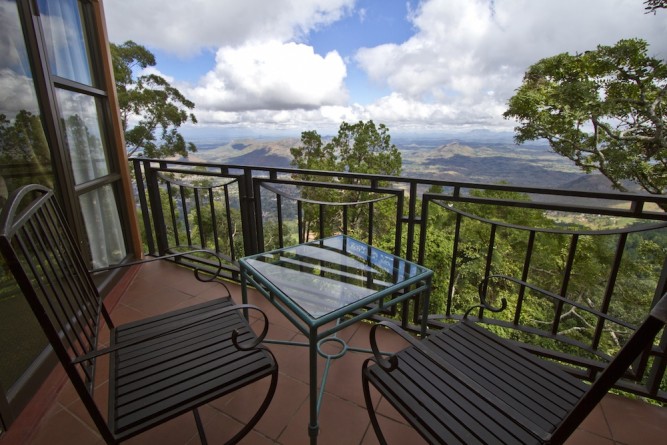
We stayed at Ku Chawe Inn, part of Malawi’s Sunbird Resorts where the views are also pretty special (as are the buffet breakfasts). This chain of hotels is catered towards corporate visitors and are ideal venues for team building exercises and conferences.
Further information can be read here:
- Aaron and Gemma would like to thank their sponsor, Cedarberg African Travel for making this trip possible, along with the Malawi Travel Consortium. With over 17-years experience providing tailor-made holidays and safaris, Cedarberg offer high value holidays in Africa.
- Flights courtesy of Ethiopian Airlines.
- Nice shots? You can read about Aaron and Gemma’s photographic and media agency, Gertie Creative Solutions here.







